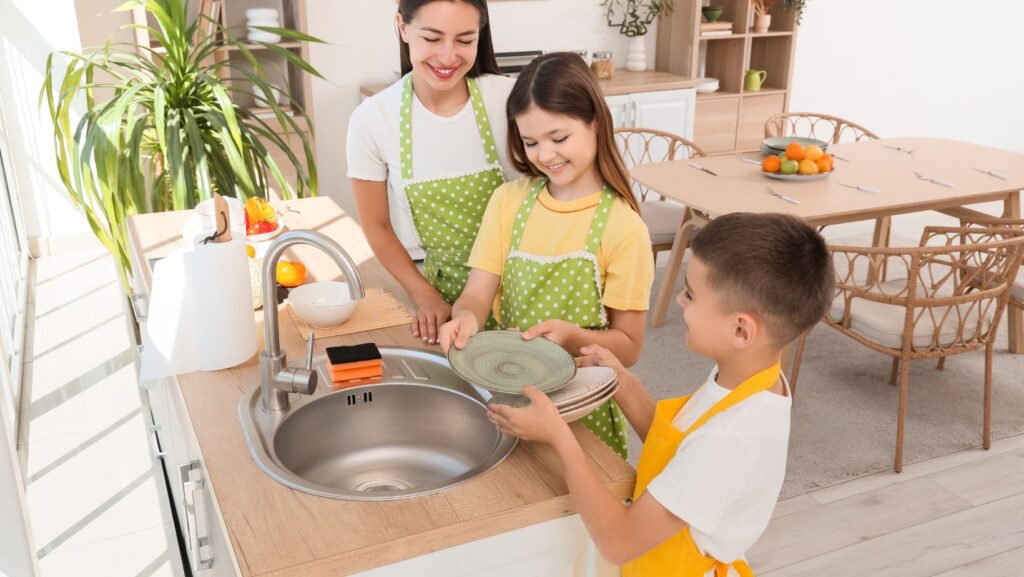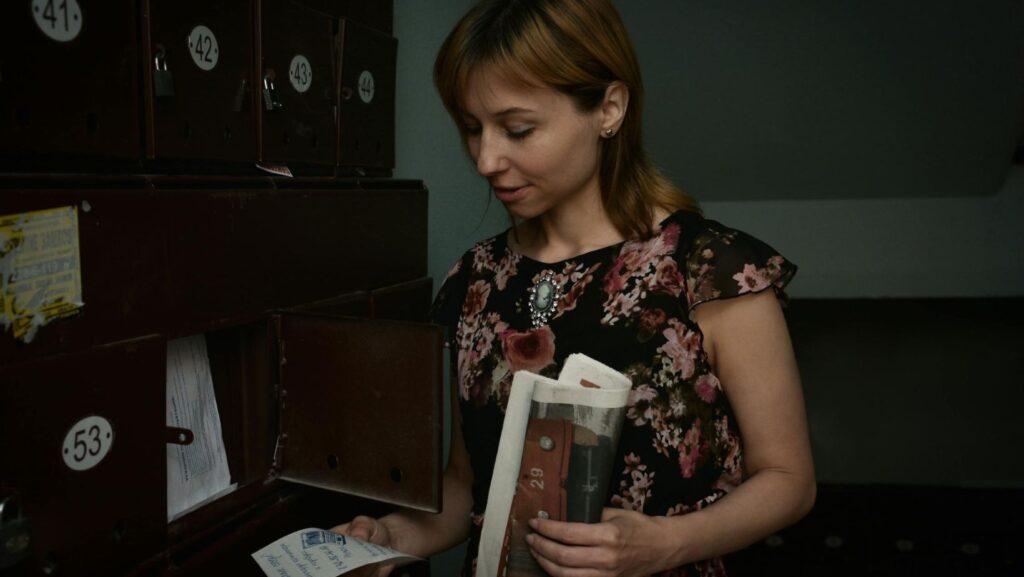One of the most important lessons that parents can impart on their children is teaching them to participate in household activities. Of these activities, kitchen cleanup is one of the daily chores that allow children an opportunity to learn to be responsible, cooperate, and take care of their living place. Some families who establish easy and regular routines have found that a chore might actually become a valuable bonding and life skill development experience with their family.
Most parents are afraid of engaging children in cleaning as they may find that it is time consuming and messy initially. But, in due time with patience and correct methods, the children pick up their routines that will ease the burden of all. The clever thing to do is to make the kids interested in the task of cleaning up the kitchen by making it accessible, entertaining and age appropriate. Through organization and providing support, parents are able to make what used to be a burden into a joint achievement.
Building a Positive Attitude Toward Cleaning
The first of the contributions towards getting the children involved in kitchen cleaning is getting them to believe it to be a normal and a good thing in their lives. The positive attitude of parents towards cleaning can be used as an example that proves that cleaning is not a punishment and is a kind of taking care of the house. Children will begin to think that they are connected with pride and satisfaction when they come to know that they contribute to the tidiness and the welcoming atmosphere in the kitchen.
Enthusiasm can also be achieved by making the process fun. Music during the washing process makes it more enjoyable, tasks turned into mini challenges, or even allowing children to choose the color of the cleaning cloth can make the process enjoyable. Children will be less unwilling to help when the activity itself is enjoyable. With the course of time, these little rituals create the sense of consistency and instill the lesson that collaboration brings fulfilling outcomes.
Creating Simple and Clear Responsibilities

Children do not react well to things they do not know. Breaking down kitchen clean up into small age-related tasks will enable everyone to contribute to the process. Young children will be able to wipe off the table or put the utensils in the sink whereas older ones will be able to rinse dishes or load the dishwasher. Clear instructions are used to avoid confusion and create the confidence of doing every job properly.
Pictorial messages are significant. A family cleaning chart or checklist may indicate who cleans wipe counters, puts away leftovers or turns on the dishwasher. These tools serve also to make the children feel responsible as well. Responsibilities are well spelled out and the kitchen cleaning routine will be more effective and less stressful on parents.
Using Practical Tools to Make Cleanup Easier
One of the most important components of keeping kids engaged is having tools that can make the process of cleaning up easy. The dishwasher pods or dishwasher tablets are used as an example to make the dishwashing process easier so that even older children could easily load and start the machine without the touching of the messy detergents. With the help of these tools, it becomes less scary and more easy, and the process that was once considered to be a problematic step is transformed into a fast and gratifying one.
Kids can be encouraged to be independent using small cleaning supplies that are kid-friendly. Lighter weight brushes, mini dustpans, and sponges, which are easy to hold, provide the children with an opportunity to clean without getting frustrated. Children feel competent and significant when they possess their own implements. This can be encouraged by parents who must praise their effort and improvement and make it clear that even the tiniest detail is important in maintaining the house clean.
Encouraging Teamwork and Routine
Setting a system in the family whereby everyone is involved in cleaning the kitchen serves to make the children realize that cleaning the kitchen is a collective activity. When the cleaning is done by the parents and the children together, it is less threatening and quicker. It also enhances family communication and collaboration. It is important to be consistent because a routine should be repeated after every meal, which will lead children to form the habits they will continue to observe in their adulthood.
Naming can also be done in such a way that the family members can alternately take up different sections of the cleanup process to ensure that each child gets to know many aspects of the cleaning process. As an example, on the night, a child may be washing dishes, and on the next night, he or she may be the one who loads the dishwasher. This rotation is a way of not being bored and it is a way of learning to be flexible. Team building that may develop as a result of these practices can enhance the way children handle responsibility in other spheres of life.
Teaching Life Skills Through Everyday Tasks
Cleaning the kitchen might be considered an easy task, yet there is a lot to learn out of it. Children are taught how to be organized, patient and respectful of the common areas. Such teachings usually go beyond the kitchen and influence them in the manner they handle their home duties in school and in social contexts. By encouraging effort and not perfection, the parents make the children believe in their potential to do something significant.
When kids are involved in the daily cleaning activity, they will be reminded of food waste and sustainability. They will realize how much is put into having a clean house and possibly appreciate the meals they are having. This consciousness contributes to the development of gratitude and discipline-qualities that would do them well in life.
Conclusion
It is not about perfection when they get kids involved in cleaning the kitchen, but about participation and learning. When formulated, patience and approach, parents can make this daily routine an exciting thing that will be beneficial to all. Cleaning with the help of convenient gadgets like dishwasher pods or dishwasher tablets has given children an easier and safer way of cleaning and made them responsible and a team builder which forms a family value forever. When children feel that they can make a difference, they do not only contribute to maintaining the kitchen clean, but they become more competent and self-assured citizens.



